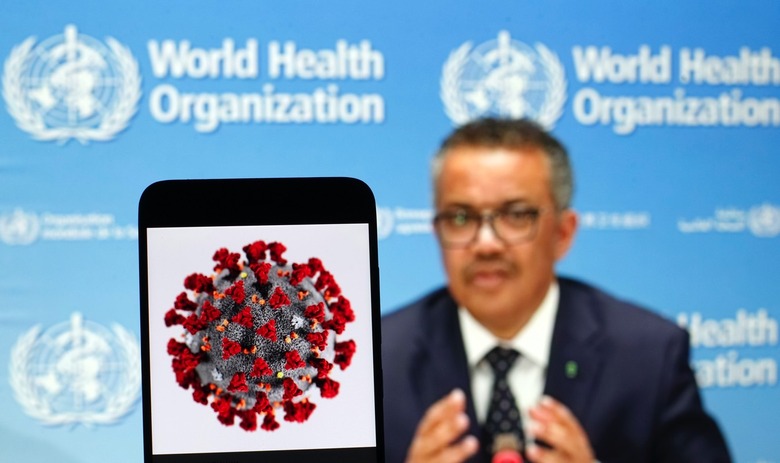WHO Just Gave Us The Worst Possible Coronavirus Prediction
- The coronavirus transmission risk remains high, warned the World Health Organization during a meeting of its emergency committee.
- WHO chief Tedros Adhanom Ghebreyesus said that the COVID-19 pandemic is a "once-in-a-century health crisis" with effects that will be felt for "decades to come."
- The health crisis already taught us that some COVID-19 patients will take weeks or even months to recover and may sustain internal damage from the infection that could lead to long-lasting medical conditions.
The novel coronavirus is here to stay, even once vaccines are widely available. It's still too early to tell how long COVID-19 immunity lasts, but infectious disease experts think the new virus will behave just like other human coronaviruses. That means reinfection could be possible as soon as six to twelve months after the first bout, and vaccine protection will be limited without regular booster shots. Even if vaccines are approved this fall or winter, it will be months until public immunization campaigns can start in earnest. The initial vaccine supply will not meet demand, as the entire world might need 15 billion doses to inoculate everyone — and some people will always resist vaccines, while others are in remote regions that may not be accessible. Therefore, it will be years before a large percentage of the world's population is vaccinated against COVID-19, and that's assuming the current candidates are effective. Other drugs are also in human trials and they could provide new effective therapies to prevent COVID-19 complications or death.
With all that in mind, it seems unlikely for the novel coronavirus to disappear anytime soon and the world will have to learn to live with it, just like it did with other infectious diseases. The World Health Organization (WHO) made this prediction several months ago, as researchers learned more details about the new illness. But now, the WHO just gave the world the worst possible forecast about the novel coronavirus.
WHO chief Tedros Adhanom Ghebreyesus spoke to reporters on Friday as the organization's emergency committee evaluated the situation six months after declaring COVID-19 an international emergency.
"It's sobering to think that six months ago when you recommended I declare a public health emergency of international concern (PHEIC), there were less than 100 cases and no deaths outside China," Tedros said, before adding that "the pandemic is a once-in-a-century health crisis, the effects of which will be felt for decades to come."
Tedros could have been referring to a variety of effects that could be felt for decades, both economic and health-related. What we do know after seven months of battling the disease is that not all patients who survive the illness heal the same way. Some will sustain significant organ damage that could take several extra weeks or even months to recover from. Researchers are also starting to observe effects that may have a long-lasting impact on patients, including heart damage that could lead to new cardiac conditions. A few patients will need lung transplants to have a chance of surviving COVID-19, and those people will need medication for the rest of their lives.
While the WHO and Tedros have seen plenty of criticism in the past few months for the way they handled the pandemic in the first weeks and the closeness to China, the organization is still the world's only health body that can coordinate the global effort to fight the new virus.
WHO warning or not, it's pretty clear that some COVID-19 patients will experience the side effects of their first encounter with COVID-19 for years or even decades to come. We're just in the first year of the pandemic and it's likely that scientists will have a better idea of the medical effects of COVID-19 on the entire body in the near future. Add to that the economic and social hardships, and it's easy to see there's no simple way out of the health crisis. The coronavirus will not just disappear one day, as some people in high places foolishly said.
Tedros also explained that many people can still be infected in the near future. "Early results from serology studies are painting a consistent picture: most of the world's people remain susceptible to this virus, even in areas that have experienced severe outbreaks," he said. The more people are infected, the more likely it is for some of the survivors to experience a prolonged recovery time and additional complications.
"Many countries that believed they were past the worst are now grappling with new outbreaks," Tedros added. "Some that were less affected in the earliest weeks are now seeing escalating numbers of cases and deaths. And some that had large outbreaks have brought them under control."
The WHO leader also noted that vaccine development is "happening at record speed." But even still, "we must learn to live with this virus, and we must fight it with the tools we have." Without access to any new drugs that can prevent the infection or improve patients' chances of recovery, the things you can do to reduce the risk of infection remain the same: Practice social distancing, wash your hands often, and always wear a face mask in public.
